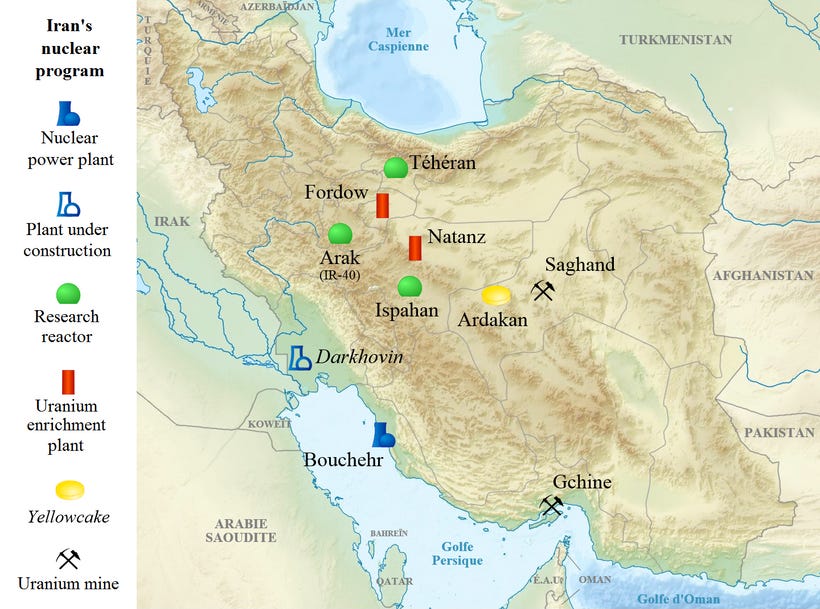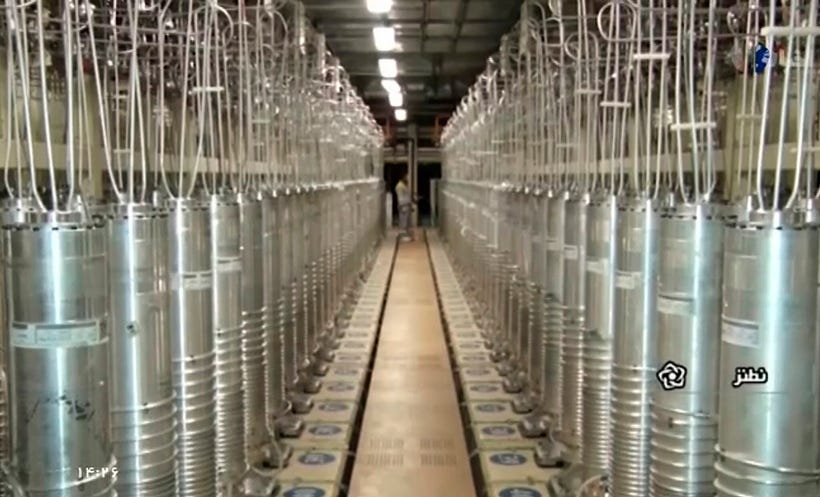Israeli Strikes on Iranian Nuclear Sites: Comprehensive Assessment
The International Atomic Energy Agency (IAEA), led by Director General Rafael Mariano Grossi, confirmed damage to Natanz’s above-ground Pilot Fuel Enrichment Plant and its electricity infrastructure
MIDDLE EAST — On June 13–15, 2025 (ongoing), the Israel Defense Forces (IDF) conducted Operation "Rising Lion," a preemptive military campaign targeting Iran’s nuclear facilities at Natanz and Isfahan to disrupt its advancing nuclear weapons program.
The International Atomic Energy Agency (IAEA), led by Director General Rafael Mariano Grossi, confirmed damage to Natanz’s above-ground Pilot Fuel Enrichment Plant and its electricity infrastructure, noting internal radiological and chemical contamination but no off-site radiation increase.
At Isfahan, four critical buildings, including the Uranium Conversion Facility, were damaged, though external radiation levels remained stable. On June 13th, Grossi reported no damage to the Fordow Fuel Enrichment Plant or the Khondab Heavy Water Reactor under construction, contrasting with the IDF’s later assertions of broader disruption.
Addressing the United Nations Security Council (UNSC), Grossi condemned the attacks, emphasizing their risks to nuclear safety and regional stability amid Iran’s retaliatory missile strikes.
Historical Context
Iran’s nuclear program has been a focal point of international concern since the 1979 Islamic Revolution, when the nation began pursuing nuclear technology, claiming the technology was for peaceful energy purposes, but refining its uranium at much higher levels than the 3-5% needed for civilian use. The latest IAEA findings reported that Iran had enriched uranium to 60% purity at its Natanz and Fordow facilities.
Western governments and Israel have long suspected a covert weapons agenda, a concern intensified by Iran’s actions following the 2018 collapse of the 2015 Joint Comprehensive Plan of Action (JCPOA). The JCPOA imposed strict limits on uranium enrichment under IAEA oversight, but Iran’s resumption of advanced enrichment after the United States’ withdrawal heightened tensions.
Israel has employed covert tactics, including the 2010 Stuxnet cyberattack and assassinations of nuclear scientists, to delay Iran’s progress. The 2025 strikes were triggered by Iran’s missile attacks on Israel in April and October 2024, linked to conflicts with Iran-backed groups Hamas and Hezbollah, prompting Israel to counter a perceived existential threat.
This situation is framed by IAEA resolutions, such as GC(XXIX)/RES/444 and GC(XXXIV)/RES/533, which have condemned attacks on nuclear facilities since the 1980s due to the potential for radioactive fallout.
Iran’s support for regional proxies and its expanding missile capabilities have escalated the stakes, positioning the 2025 strikes as both a defensive strategy and a high-risk move in a decades-long standoff.
Acronym Index
IDF: Israel Defense Forces
IAF: Israeli Air Force
IAEA: International Atomic Energy Agency
IRGC: Islamic Revolutionary Guard Corps
UNSC: United Nations Security Council
Timeline of Key Events
On June 13, 2025, the IAEA was informed of Israeli strikes and confirmed initial damage at the Natanz Fuel Enrichment Plant.
The IDF launched Operation "Rising Lion," targeting Natanz’s uranium enrichment facilities.
Isfahan nuclear facilities were struck multiple times, as reported by the IAEA.
IAF jets hit Isfahan, focusing on uranium reconversion infrastructure.
The IAEA assessed no damage to Fordow or Khondab, no further damage at Natanz, and damage to four Isfahan buildings with no off-site radiation increase.
Grossi addressed the UNSC, urging restraint and condemning attacks on nuclear sites.








